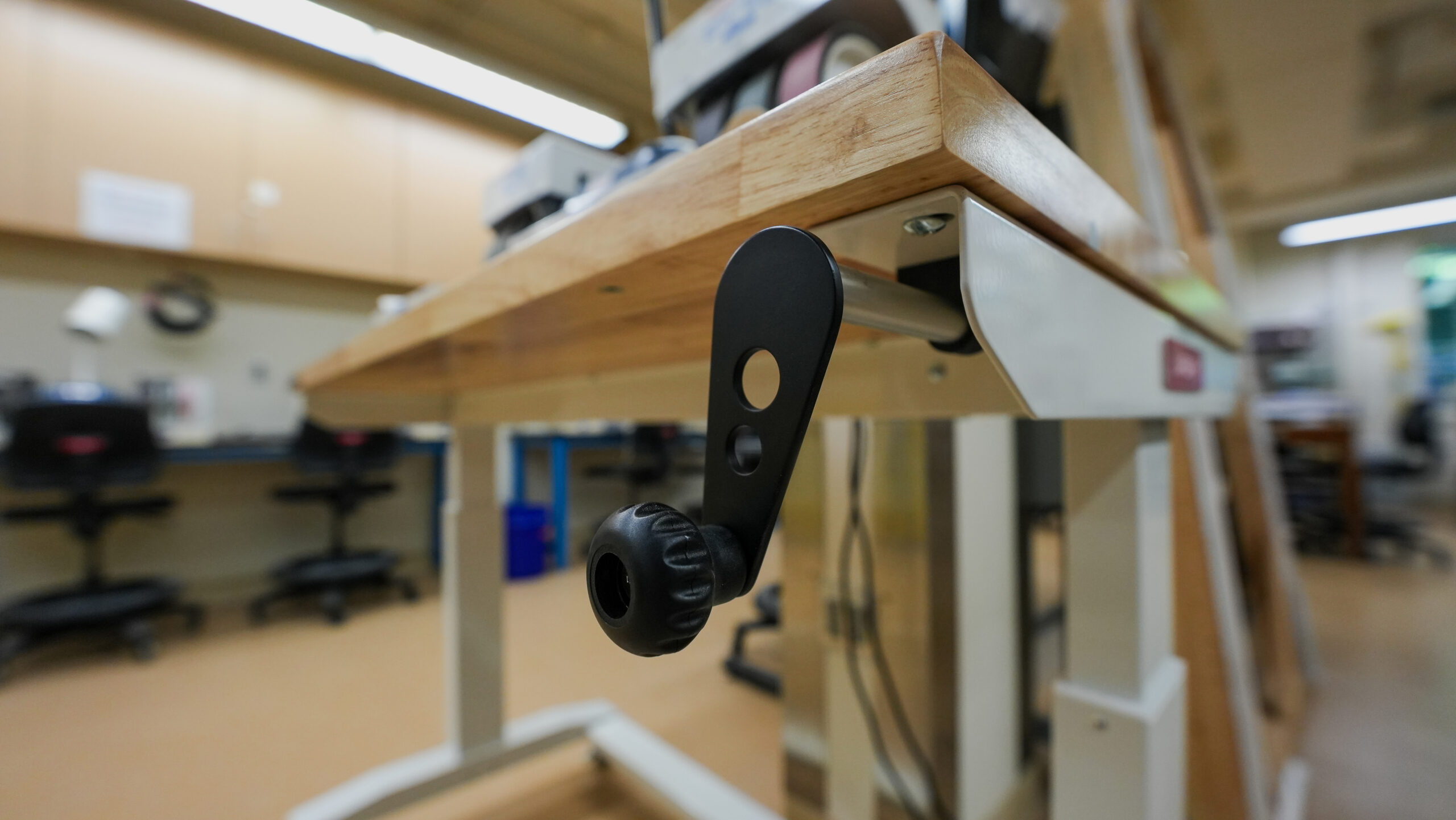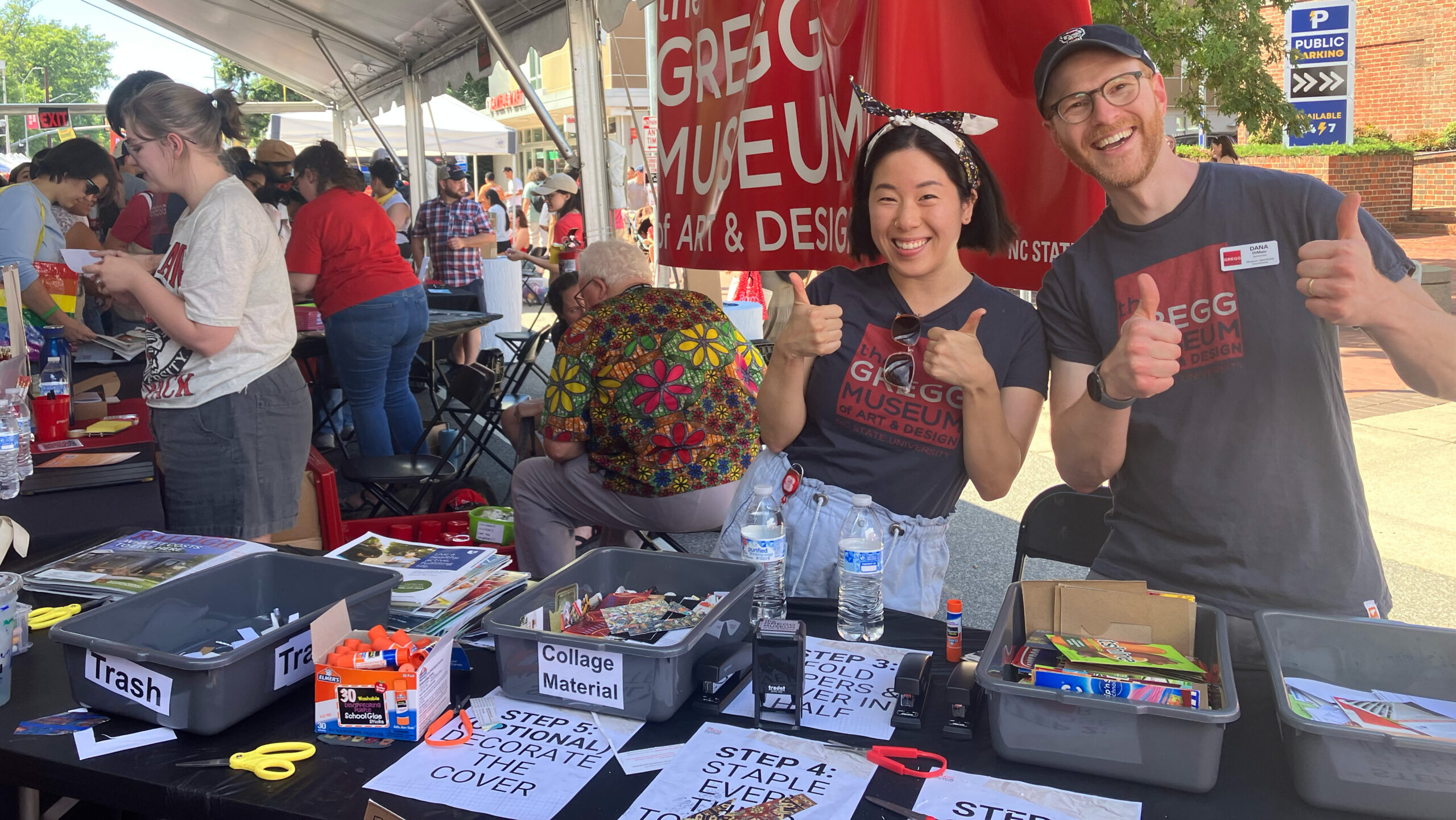Explaining Science Through Theater
A new course, the Theatre of Science Fictions and Science fact, uses theater productions to explain scientific concepts.

Theater productions are often intended to entertain, evoke emotions and provoke thought for their audiences. At institutions such as NC State, they can also be used to educate and inform about critical issues and scientific topics.
This is exactly what Dahlia Nielsen, an Associate Professor in NC State’s Department of Biological Sciences, and George Jack, an Associate Professor of Humanities at Saint Augustine’s University, have set out to do.
Last semester, the pair teamed up to teach a new course as part of NC State’s Biological Sciences Life Sciences First Year Program (LSC 170) courses, calling it “The Theatre of Science Fiction and Science Fact.”
Jack, who has been part of theater productions for the majority of his life, explained that this would be a means of addressing science education by looking at the way scientific topics are depicted in theater, but eventually extending that into motion pictures, television, fiction and social media.
“We would at first be using theater and later film and television to look at how science is depicted and to talk about whether that depiction is accurate or not, and what kind of impacts and effects that might have,” Jack said. “There’s the examination of how science is presented in pop culture and entertainment media. Is it accurate, is it not? If it’s not, is it used to further a narrative, structure or something like that? Is that ultimately useful or not, or perhaps harmful or not?”
Nielsen’s scientific work, which examines the interactions between plants and parasites and the impacts of temperature on those actions, is funded through the National Science Foundation’s (NSF) Plant Genome Research Program, and the new class and theater production is also being funded through that grant.
Nielsen explained that every project that receives grant money through the NSF must fulfill a “Broader Impacts” requirement, which demonstrates how the project will benefit society.
“The other piece you need is how you are going to take your science to the community,” Nielsen said. “So that community might be your local community or a broader community, but you have to provide some mechanism by which you are going to communicate the scientific merit of your project to a greater audience.”
The one-credit courses in the Biological Sciences Life Sciences First Year Program (LSC 170) serve as a perfect route to explore a new way of communicating research, allowing Nielsen and Jack to team up for a science-themed play.
For the class’s first production last fall, Jack chose Alistair Faulkner’s “Wake Me When It’s Time,” a play that incorporates several important scientific topics.
There were eight students in the class, with five performing in the play and three leading an audience discussion of it afterwards.
Jack explained that, for the one-act play, there were about seven total hours of rehearsal time available, well under the typical recommended time.
“Some of the folks had theater experience, some of them did not,” Jack said. “All of them tackled it, and were absolutely wonderful with what they did. We decided to have them carry the scripts with them, so they didn’t have to worry about memorizing the lines, sowe could use the time that we had to completely focus on the interactions of the characters.”
In order to perform the play and demonstrate the impact of the new course with the wider audience, Nielsen and Jack partnered with University Theatre to host the performance in the Kennedy-McIwee Studio Theatre in November.
In addition, students and staff from University Theatre assisted with lights and sound for the production.
“It was phenomenal,” Jack said. “They added so much to the performance for us, and I was absolutely grateful that we now have this connection with University Theatre as well. Hopefully we’ll expand on that. I can’t say enough about University Theater.”
For University Theatre Director and Arts NC State Interim Executive Director Joshua Reaves, the benefits of hosting the performance in University Theatre’s space were manifold.
“In the studio series where this project is set, the production allows entry-level and intermediate students to take on the roles of lighting and sound designer. This is particularly exciting for us because it addresses several key issues. It helps Dahlia and her students gain valuable experience, provides opportunities for students to showcase their work and offers hands-on experience in operating, designing and working on the show itself.”
Reaves said that the increasing focus on the intersection of art and STEM disciplines at NC State open new possibilities for both fields.
“That’s why we’re here at NC State,” Reaves said. “We want to find different ways to disrupt the normal operations of research and art. In a traditional sense, the closest theaters may get to working with researchers would be to have a science advisor on a show to discuss the work. We may invite a researcher who could assist the actors, directors, writers and production team members in understanding the technical aspects; the science jargon. However, here, the roles have been reversed. We’re now bringing in artistic advisors to help convey the science. While the subject matter may be challenging to grasp, the arts can potentially present it in a more accessible and entertaining manner.”
Going forward with the Theatre of Science Fiction and Science Fact course, Nielsen and Jack hope to expand the project to include playwriting, and to create new scripts that incorporate specific science themes.
The goal will be to match the topics more directly to the research topic of the grant, and they ultimately hope to create a performing company that can inspire people to learn more about science, and even to encourage people to become involved in science careers.
“There are so many pieces to education and also to living and to doing science. You might have to be able to illustrate things,” Nielsen said. “Sound might be important. Understanding music theory might be critically important to being able to perform a scientific career, and the ability to make advances. The ability to be able to draw, to illustrate in ways that haven’t been done before can be critically important to how you educate students, how you understand the scientific topic you’re looking at, and how to bring it forward. The idea of ripping the fields of science and art apart and having them be two separate things is actually kind of criminal.”
- Categories:


